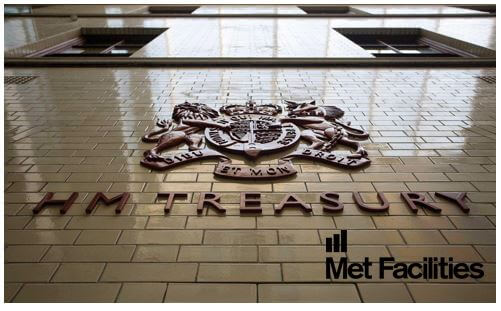HM Treasury proposal for a temporary transitional power to be exercised by UK regulators
HM Treasury has released its proposal for a temporary transitional power to be exercised by UK regulators to provide continuity to regulated firms after the UK’s withdrawal from the EU.
On 27th June, HM Treasury set out its approach to financial services legislation which would be introduced under the European Union (Withdrawal) Act 2018 (the “Act”) as part of preparations for Brexit. As set out in this policy document, HM Treasury’s approach to financial services legislation under the Act is to provide continuity. Wherever practicable, the same laws and rules that are currently in place in the UK should continue to apply after exit. However, some adjustments to those laws and rules will be required to reflect the UK’s new position outside of the EU. And in some cases, the adjustments will change firms’ regulatory obligations. These adjustments will take effect on 29th March 2019 if the UK leaves the EU without a withdrawal agreement and without an implementation period.
HM Treasury and the UK regulators set out in June that they do not expect firms providing services within the UK’s regulatory remit to have to prepare now to implement these changes from exit day. In this sense, HM Treasury will ensure that the UK’s regulatory regime is flexible enough to support firms as they adjust to altered regulatory requirements in the unlikely event that there is no implementation period.
In addition to the specific transitional measures referred to above, HM Treasury therefore intends to temporarily empower the UK financial regulators (the Bank of England, the Prudential Regulation Authority (PRA) and the Financial Conduct Authority (FCA)) to make transitional provision by waiving or modifying firms’ regulatory obligations where those obligations have changed as a result of onshoring financial services legislation. The power will enable transitional provision to be made in response to changes to the regulators’ own rules, onshored EU regulations (that will form part of retained EU law) and EU-derived domestic primary and secondary legislation. Also, the power could be used to grant transitional relief in respect of any existing regulatory requirements that would otherwise apply for the first time on exit day to a particular category of firm.
The temporary transitional power being proposed is necessary to ensure that UK regulators can continue to meet their statutory objectives in the unlikely scenario that the UK leaves the EU without an implementation period. In particular, it is essential that changes to firms’ regulatory obligations do not pose a risk to the UK regulators’ objectives that have been set by Parliament (these include financial stability, the safety and soundness of firms, policyholder protection, market integrity, and consumer protection). The regulators are best placed to identify where the changes to firms’ regulatory obligations may present risk to their objectives. Therefore, the temporary transitional power will allow the UK regulators, in line with their regulatory remits, to identify and manage those risks so that firms transition to the UK’s post exit regime in an orderly way, in line with the objectives already set by Parliament.
The ability of the PRA and FCA to adapt the application of certain regulatory requirements is already provided for in the UK’s regulatory framework. Under section 138A of the Financial Services and Markets Act 2000 (FSMA), the PRA and the FCA may waive or modify the application of a rule made under FSMA where certain statutory criteria are met. HM Treasury proposes to adapt and extend this concept for the no-deal scenario by providing the UK regulators with a temporary power available to be used in respect of all firms, that could be applied beyond the regulators’ own rules, for the specific purpose of enabling firms to adjust to onshoring changes in an orderly way (rather than the criteria in section 138A FSMA needing to be satisfied).
HM Treasury intends to use powers under the Act to delegate this temporary transitional power to the financial regulators. The power could be used where, in the judgment of the regulators, transitional provision would be appropriate to enable firms to adjust to the post-exit regulatory framework in an orderly way. Transitional provision could include, for example, delaying onshoring changes so that firms could comply with pre-exit standards for a limited time after exit, rather than needing to implement the relevant onshoring changes by 29th March 2019. Transitional relief could not be granted if this would undermine the regulators’ statutory objectives. The power could not be used for any purpose other than facilitating firms in adjusting to the UK’s post exit regulatory regime. As such, it could not be used to waive or modify a firm’s pre-exit obligations where they are unaltered by legislation made under the Act.
The power to make transitional provision would be available to the regulators for 2 years from exit. Transitional provision made using the power would cease to have effect after 2 years from exit.
The power could be used to grant transitional relief in relation to changes under the Act which have been made to regulatory requirements where UK regulators are responsible for supervising compliance, including regulatory requirements which form part of:
▪ PRA and FCA rules made under FSMA
▪ Onshored Binding Technical Standards (BTS)
▪ Onshored EU financial services regulations or delegated regulations
▪ Relevant UK primary or secondary legislation
Transitional relief could be granted to particular firms, classes of firms, or all firms to which a particular onshoring change applies, including firms that have entered into one of the transitional regimes referred to above. Firms would not need to apply for transitional relief in order to benefit from it. Rather, the regulators will issue “directions” that set out the terms of the proposed transitional relief. The directions would normally be published on the regulators’ websites, except where this was inappropriate or unnecessary.
But, as set out above, the proposed transitional power could only be used for the limited purpose of facilitating firms in adjusting to the UK’s post exit regulatory regime (it is not a general power to waive or modify these requirements for any other reason). Where specific transitional provision in relation to a particular issue has already been made in a HM Treasury statutory instrument made under the Act, the power would not need to be used, as no additional transitional relief would need to be provided for. The power would also not be available to alter the following requirements:
▪ Any provision that sets the ‘regulatory perimeter’ for UK financial services activity
▪ FSMA threshold conditions
▪ Any provision or requirement which is not within the regulatory remit of the UK financial services regulators
HM Treasury proposes to confer this power on the Bank of England, the PRA and the FCA in an affirmative procedure statutory instrument under the Act. The instrument will be laid before Parliament in due course.
Further information:
To read more, please follow this link:
https://www.gov.uk/government/publications/proposal-for-a-temporary-transitional-power-to-be-exercised-by-uk-regulators/proposal-for-a-temporary-transitional-power-to-be-exercised-by-uk-regulators#specific-transitional-measures-to-minimise-disruption
Contact us here
Other articles

HM Treasury proposal for a temporary transitional power to be exercised by UK regulators






